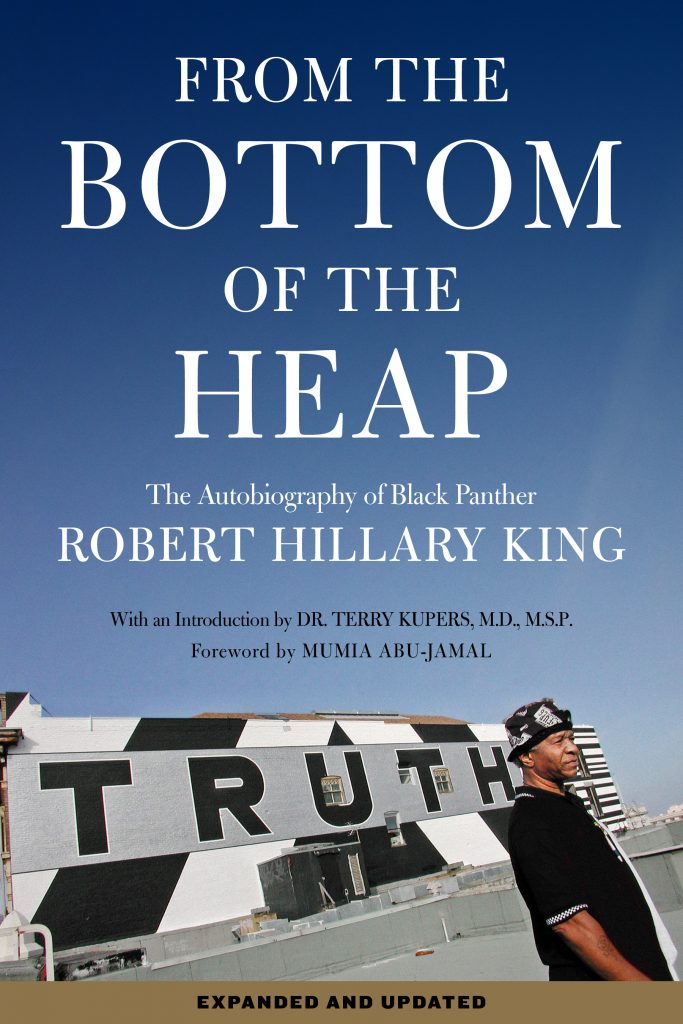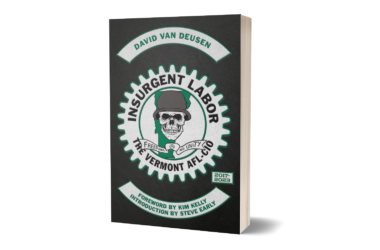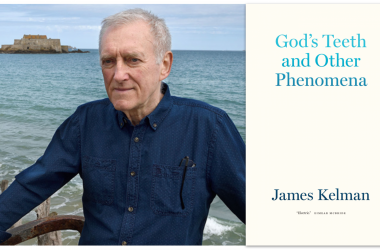By Hans Bennett
Alternet
Together, Robert King, Albert Woodfox, and Herman Wallace have spent more than 100 years in solitary confinement.
“My soul cries from all that I witnessed and endured. It does more than cry, it mourns continuously,” said Black Panther Robert Hillary King, following his release from the infamous Louisiana State Penitentiary at Angola in 2001, after serving his last 29 years in continuous solitary confinement. King argues that slavery persists in Angola and other U.S. prisons, citing the 13th Amendment to the U.S. Constitution, which legalizes slavery in prisons as “a punishment for crime whereof the party shall have been duly convicted.” King says: “You can be legally incarcerated but morally innocent.”
Robert King, Albert Woodfox, and Herman Wallace are known as the “Angola Three,” a trio of political prisoners whose supporters include Amnesty International, Archbishop Desmond Tutu, Congressman John Conyers, and the ACLU. Kgalema Mothlante, the President of South Africa says their case “has the potential of laying bare, exposing the shortcomings, in the entire U.S. system.” Woodfox and Wallace are the two co-founders of the Angola chapter of the Black Panther Party (BPP) — the only official prison chapter of the BPP. Both convicted in the highly contested stabbing death of white prison guard Brent Miller, Woodfox and Wallace have now spent over 36 years in solitary confinement.
The joint federal civil rights lawsuit of King, Woodfox, and Wallace, alleging that their time in solitary confinement is “cruel and unusual punishment,” will go to trial any month in Baton Rouge, at the U.S. Middle District Court. Herman Wallace’s appeal against his murder conviction is currently pending in the Louisiana Supreme Court, and on March 18, he was transferred to the Hunt Correctional Facility in St. Gabrielo, Louisiana, where he remains in solitary confinement. On March 2, the U.S. Fifth Circuit Court heard oral arguments regarding Albert Woodfox’s conviction, after the Louisiana Attorney General appealed a lower court’s ruling that overturned the conviction.
An 18,000-acre former slave plantation in rural Louisiana, Angola is the largest prison in the U.S. Today, with African Americans composing over 75% of Angola’s 5,108 prisoners, prison guards known as “free men,” a forced 40-hour workweek, and four cents an hour as minimum wage, the resemblance to antebellum U.S. slavery is striking. In the early 1970s, it was even worse, as prisoners were forced to work 96-hour weeks (16 hours a day/six days a week) with two cents an hour as minimum wage. Officially considered (according to its own website) the “Bloodiest Prison in the South” at this time, violence from guards and between prisoners was endemic. Prison authorities sanctioned prisoner rape, and according to former Prison Warden Murray Henderson, the prison guards actually helped facilitate a brutal system of sexual slavery where the younger and physically weaker prisoners were bought and sold into submission. As part of the notorious “inmate trusty guard” system, responsible for killing 40 prisoners and seriously maiming 350 between 1972-75, some prisoners were given state-issued weapons and ordered to enforce this sexual slavery, as well as the prison’s many other injustices. Life at Angola was living hell — a 20th century slave plantation.
The Angola Panthers saw life at Angola as modern-day slavery and fought back with non-violent hunger strikes and work strikes. Prison authorities were outraged by the BPP’s organizing, and overwhelming evidence has since emerged that authorities retaliated by framing these three BPP organizers for murders that they did not commit.
Albert Woodfox and Herman Wallace
Both convicted of murder for the April 17, 1972 stabbing death of white prison guard Brent Miller, Albert Woodfox and Herman Wallace have recently had major victories in court that may soon lead to their release. In response, Angola Warden Burl Cain and the Louisiana State Attorney General, James “Buddy” Caldwell, are doing everything they can to resist this and to keep the two in solitary confinement. In sharp contrast, Miller’s widow, Leontine Verrett, now questions their guilt. Interviewed in March, 2008, by NBC Nightly News, she called for a new investigation into the case: “What I want is justice. If these two men did not do this, I think they need to be out.”
Woodfox and Wallace were inmates at Angola, resulting from separate robbery convictions, when they co-founded the Angola BPP chapter in 1971. Woodfox had escaped from New Orleans Parish Prison and fled to New York City, where he met BPP members, including the New York 21, before he was recaptured and sent to Angola. Wallace had met members of the Louisiana State Chapter of the BPP, including the New Orleans 12, while imprisoned at Orleans Parish.
On September 19, 2006, State Judicial Commissioner Rachel Morgan recommended overturning Wallace’s conviction, on grounds that prison officials had withheld evidence from the jury that prison officials had bribed the prosecution’s key eyewitness in return for his testimony. However, in May 2008, in a 2-1 vote, the State Appeals Court rejected Morgan’s recommendation and refused to overturn the conviction. Wallace’s appeal is now pending in the State Supreme Court, with a decision expected any month.
On June 10th, 2008, Federal Magistrate Christine Noland recommended overturning Woodfox’s conviction, citing evidence of inadequate representation, prosecutorial misconduct, suppression of exculpatory evidence, and racial discrimination. Then, on November 25, U.S. District Court Judge James Brady upheld Noland’s recommendation, overturned the conviction, and granted bail. Attorney General Caldwell responded by appealing to the U.S. Fifth Circuit. In December, the Fifth Circuit granted Caldwell’s request to deny Woodfox bail, but indicated sympathy for the overturning of the conviction, writing: “We are not now convinced that the State has established a likelihood of success on the merits.” On March 3, oral arguments were heard by appellate Judges Carolyn Dineen King, Carl E. Steart and Leslie H. Southwick, and a decision from them is now expected within six months. If the three judge panel affirms the overturning of Woodfox’s conviction, the state will have 120 days to either accept the ruling or to retry Woodfox. The state has already vowed to retry him if necessary. If the Fifth Circuit rules for the state, Woodfox’s conviction will be reinstated.
Ira Glasser, formerly of the ACLU, criticized AG Caldwell, writing that following the October 2008 announcement that Woodfox’s niece had agreed to take him in if granted bail, Caldwell “embarked upon a public scare campaign reminiscent of the kind of inflammatory hysteria that once was used to provoke lynch mobs. He called Woodfox a violent rapist, even though he had never been charged, let alone convicted, of rape; he sent emails to [Woodfox’s niece’s] neighbors calling Woodfox a convicted murderer and violent rapist; and neighbors were urged to sign petitions opposing his release. In the end, his niece and family were sufficiently frightened and threatened that Woodfox rejected the plan to live with them while on bail.” In his Nov. 25 ruling, Judge Brady himself criticized the intimidation campaign: “it is apparent that the neighborhood association was not told Mr. Woodfox is frail, sickly, and has a clean conduct record for more than twenty years.”
When the October 27-29 National Public Radio (NPR) series on the case reported directly from Angola, reporter Laura Sullivan observed, “a hundred black men are in the field, bent over picking tomatoes. A single white officer on a horse sits above them, a shotgun in his lap … It’s the same as it looked 40 years ago, and 100 years ago.” Commenting that many at Angola today “seem to want to bury this case in a place no one will find it,” NPR reported that Warden Burl Cain and others refused to comment. However, Caldwell told NPR he is convinced that Woodfox and Wallace are guilty, and that he will appeal Woodfox’s case all the way to the US Supreme Court. “This is a very dangerous person,” Caldwell says. “This is the most dangerous person on the planet.”
As NPR documented, there is no physical evidence linking Woodfox or Wallace to the murder. A bloody fingerprint was found at the scene but it matches neither prisoner’s prints. Prison officials have always refused to test that fingerprint against their own inmate fingerprint database. Caldwell vows to continue this policy, telling NPR: “A fingerprint can come from anywhere … We’re not going to be fooled by that.”
Caldwell also told NPR that he firmly believes the testimony of the prosecution’s key eyewitness, Hezekiah Brown, a serial rapist who had been sentenced to life without parole. Brown first told prison officials that he didn’t know anything, but he later testified to seeing Miller stabbed to death by four inmates: Woodfox and Wallace, and two others who are now deceased: Chester Jackson (who testified for the state and pled guilty to a lesser charge) and Gilbert Montegut (who was acquitted after an officer provided an alibi).
Pardoned in 1986, and now deceased, Brown always denied receiving special favors from prison authorities in exchange for his testimony. However, prison documents reveal special treatment, including special housing and a carton of cigarettes given to him every week. Testifying at Woodfox’s 1998 retrial, former Warden Murray Henderson admitted telling Brown that if he provided testimony helping to “crack the case,” he would reward him by lobbying for his pardon.
Solitary Confinement for “Black Pantherism”
In early 2008, a 25,000-signature petition initiated by ColorOfChange.org, calling for an investigation into Woodfox and Wallace’s convictions and solitary confinement, was delivered to Louisiana Governor Bobby Jindal by the head of the State Legislature’s Judiciary Committee, Cedric Richmond. To this day, Jindal remains silent on the case.
In March, 2008, following a visit from Congressman John Conyers, Chairman of the US House Judiciary Committee; Innocence Project founder Barry Scheck; and Cedric Richmond, Wallace and Woodfox were transferred from solitary and housed together in a newly-built maximum security dormitory for twenty men. This temporary release from solitary lasted for eight months, during which time Woodfox reflected: “The thing I noticed most about being with Herman is the laughing, the talking, the bumping up against one another … we’ve been denied this for so long. And every once in a while he’ll put his arm around me or I’ll put my arm around him. It’s those kinds of things that make you human. And we’re truly enjoying that.”
In April, following his visit, Conyers wrote a letter to the FBI requesting their documents relating to the case, stating: “I am deeply troubled by what evidence suggests was a tragic miscarriage of justice with regard to these men. There is significant evidence that suggests not only their innocence, but also troubling misconduct by prison officials.” The FBI responded by claiming that they had no files on the case, because, they had supposedly been destroyed.
In his deposition taken October 22, 2008, Warden Burl Cain explained why he opposed granting Woodfox bail and removing him from solitary confinement. Asked what gave him “such concern” about Woodfox, Cain stated: “He wants to demonstrate. He wants to organize. He wants to be defiant … A hunger strike is really, really bad, because you could see he admitted that he was organizing a peaceful demonstration. There is no such thing as a peaceful demonstration in prison.” Cain then stated that even if Woodfox were innocent of the murder, he would still want to keep him in solitary, because “I still know he has a propensity for violence … he is still trying to practice Black Pantherism, and I still would not want him walking around my prison because he would organize the young new inmates. I would have me all kinds of problems, more than I could stand, and I would have the blacks chasing after them. I would have chaos and conflict, and I believe that.”
The only other known U.S. prisoner to have spent so many years in solitary confinement is Hugo Pinell, in California. One of the San Quentin Six, Pinell was a close comrade of Black Panther and prison author, George Jackson. Currently housed in Pelican Bay State Prison’s notorious “Security Housing Unit”, Pinell has been in continuous solitary since at least 1971. The recently freed Angola 3 prisoner Robert Hillary King says Pinell “is a clear example of a political prisoner.” This January, Pinell was denied parole for the next 15 years, which King says “is a sentence to die in prison. This is cruel and unusual punishment, which may be legal but is definitely not moral.”
Robert Hillary King
The new book From the Bottom of the Heap: The Autobiography of Robert Hillary King has just been released by PM Press. This inspiring book tells of King’s triumph over the horrors of Angola. Born poor in rural Louisiana, he was raised mostly by his heroic grandmother, who King recounts “worked the sugar cane fields from sun up ’til sun down for less than a dollar a day. During the off-season, she washed, ironed clothes, and scrubbed floors for whites for pennies a day or for leftover food. Her bunions and blisters told a bitter but vivid tale of her travails.”
King first entered Angola at the age of 18, for a robbery conviction. In his book, he admits to doing some non-violent burglaries at the time, but maintains his innocence regarding this conviction and every one since. Granted parole in 1965, at the age of 22, he returned to New Orleans, got married, and began a brief semi-pro boxing career as “Speedy King.” He was then arrested on charges of robbery, just weeks before his wife Clara gave birth to their son. After being held for over 11 months, his friend pled guilty to a lesser charge and was released on time served. Simultaneously, the DA dropped the charges against King, but he was not released, because his arrest, coupled with his friend’s guilty plea was deemed a parole violation. Therefore, King was sent back to Angola where he served 15 months and was released again in 1969.
Upon release, King was again arrested on robbery charges, and was convicted, even though his co-defendant testified that he had only picked King out of a mug shot lineup after being tortured by police into making a false statement. King appealed, and while being held at New Orleans Parish Prison, he escaped, but was re-captured weeks later. Upon returning to Orleans Parish he met some of the New Orleans 12–BPP members arrested after a confrontation with police at a housing project. He was radicalized and worked with the Panthers organizing non-violent hunger strikes, and engaging in self-defense against violent attacks from prison authorities.
In 1972, King moved to Angola shortly after the death of prison guard Brent Miller. Upon arrival, on grounds that King “wanted to play lawyer for another inmate,” he was immediately put into solitary confinement: first in the “dungeon,” then the “Red Hat,” and finally to the Closed Correction Cell (CCR) unit, where he remained until his 2001 release. At CCR, King writes that the Angola BPP chapter and others continued to struggle, using the one hour a day outside their cells (when they were allowed to shower and interact in the walkway) to organize: “That was how we talked, passed papers, educated each other, and coordinated our actions.”
King writes about the fight, started in 1977, to end the practice of routine rectal searches of prisoners: “Coming to a consensus conclusion that this practice was a carryover from slavery (before being sold, the slave had to be stripped and subjected to anal examination), and after months of appealing to our keepers, we decided to take a bold step: we would simply refuse a voluntary anal search. We would not be willing participants in our own degradation.” When King and others refused, they were viciously beaten. Woodfox hired a lawyer on the prisoners’ behalf and they filed a successful civil suit. The court ruled to ban “routine anal searches.” Another victory came after a one month hunger strike that stopped the unhealthy and dehumanizing practice of putting the inmate’s food on the floor to be slid underneath the cell door, whereby food would often be lost and the remaining food would usually get dirty.
In 1973, King was accused of murdering another prisoner, and was convicted at a trial where he was bound and gagged. After years of maintaining his innocence and appealing, his conviction was overturned in 2001, after he reluctantly pled guilty to a lesser charge of “conspiracy to commit murder” and was released on time served.
Kenny “Zulu” Whitmore
On June 21, 2008, Robert King attended the unveiling of a 40-foot mosaic dedicated to Angola prisoner and Angola BPP member Kenneth “Zulu” Whitmore, launching the “Free Zulu” campaign. King is working to publicize his case, saying “Zulu is a true warrior, Panther, a servant of the people. He has fought a good battle, for so long, unrecognized, unsupported!”
The mosaic adorns the back of activist/artist Carrie Reichardt’s home in the West London suburb of Chiswick. Reichardt says “we chose to base the design around a modern day interpretation of the Goddess Kali. She is considered the goddess of liberation, time and transformation. We wanted to use a strong, positive image of a female that would give hope and encourage others to join the struggle to bring about social change. Her speech bubble says ‘The revolution is now’.”
Imprisoned since 1977, Whitmore met Herman Wallace while imprisoned in 1973 at the East Baton Rouge Prison. Whitmore was released but then arrested and subsequently imprisoned at Angola when he was convicted of robbery and second-degree murder after he had returned to the community and been a political organizer. Just like the Angola 3, the case against him is full of holes, and he is appealing his conviction. Whitmore does not have a lawyer yet, so the freezulu.co.uk website is raising money to support his appeal.
Angola: The Last Slave Plantation
Three court cases are now pending: the federal civil rights lawsuit at the U.S. Middle District Court, Albert Woodfox’s appeal at the U.S. Fifth Circuit, and Wallace’s appeal at the State Supreme Court. At this critical stage, a new DVD has just been released by PM Press, titled The Angola 3: Black Panthers and the Last Slave Plantation. The DVD is narrated by death-row journalist Mumia Abu-Jamal, and features footage of King’s 2001 release, as well as an interview with King and a variety of former Panthers and other supporters of the Angola 3, including Bo Brown, David Hilliard, Geronimo Ji Jaga (formerly Pratt), Marion Brown, Luis Talamantez, Noelle Hanrahan, Malik Rahim, and the late Anita Roddick.
The perpetuation of white supremacy and slavery at Angola is a central theme throughout the film. Fred Hampton Jr., emphasizes that “we’ve got to make the connection between these modern day plantations, and what went down with chattel slavery.” Scott Fleming, a lawyer for the Angola 3, says: “That prison is still run like a slave plantation … People like Albert Woodfox and Herman Wallace are the example of what will happen to you if you resist that system.”
Longtime Japanese-American activist Yuri Kochiyama says that Woodfox and Wallace “love people and will fight for justice even if it puts them on the spot. I think of them as real heroes … who hated to see people in the prison get hurt.” San Francisco journalist and former BPP member Kiilu Nyasha adds that “it behooves us to not forget those who were on the frontlines for us. … We need to come to their rescue because they came to ours.”
The many years of repression and torture have failed to extinguish the Angola 3’s spirit or will to resist, as Woodfox explains in the DVD: “At heart, mind and spirit, we’re still Black Panthers. We still believe in the same principles as the BPP, we still advocate the ten point program. We still advocate that all prisoners, black or white, are human beings. They deserve to be treated as human beings.”







